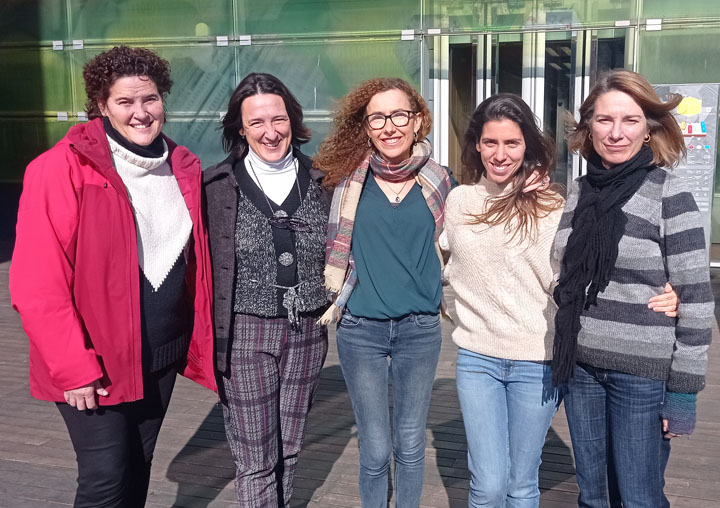Experts from the UV, the UPV, and the CSIC monitor the gender gap in the research centres in the Valencian Community
- Press Office
- February 10th, 2023

The research group INVISIBLES, consisting of researchers from the University of Valencia (UV), the Polytechnical University of Valencia (UPV) and the Spanish National Research Council (CSIC), is working on a study to monitor the gender gap in the research centres of all three provinces in the Valencian Community
The research team started this study in the beginning of 2022. Within their first conclusions, it was determined that the gap is, in many cases, attributed to the meritocracy rather than to a gender discrimination; and also that the higher the rank of the interviewed person, the less aware they are of the gender gap issue. “In other words, in the direction positions, the fact that there is a wall in terms of gender in valencian research is not noticed as much, there doesn’t seem to be a glass ceiling”, adds Mónica García Melón, researcher from the INGENIO Institute (UPV-CSIC) and member of the INVISIBLES group.
In this first phase, the study determines as well that having children will harm a woman’s scientific career more than a man’s, and that there are still a lot of “issues” to include the gender perspective in the research content.
“These are some of the first conclusions of the work made until now, a study we want to dive into the current situation in the research centres of Castelló, València and Alacant with, to identify the reasons of the gender gap and promote better practices in said centres to reduce it”, comments Carmen Corona Sobrino, researcher of the University of Valencia and member of the INVISIBLES group.
Analytic tool
To conduct this study, the researchers of the UV, the UPV and the CSIC are working on an analytic tool that will consist of different indicators about representation, visibility, organisational culture and working conditions of each of the research centres.
“We will monitor the institutes with these indicators and a survey, deep interviews and a debate after obtaining the results of each centre. From this data, we will elaborate a guide of good practices with the only goal of reducing the gender gap that undeniably exists. Because, to this day, scientific research is still patriarchal”, adds Sara Sanchez, researcher from INVISIBLES in the UPV and whose doctoral thesis is focused on this topic.
The study is still on its first phase. In this moment, the team of the UV, UPV and CSIC works on the definition of the specific indicators list to monitor to the detail the gender gap, as well as the measurement scales that we could have for each of the monitored aspects.
“Our next objective will be to develop a complete tool that allows doing a self-diagnosis. The same way there are tools that diagnose the institutions’ environmental responsibility levels, the idea would be to do the same with the good gender practices”, concludes Rocío Poveda, researcher of the INVISIBLES group too.
With Carmen Corona Sobrino (UV), Mónica García Melón (UPV), Sara Sánchez López (UPV) and Rocío Poveda Bautista (UPV), in the INVISIBLES group, we can also find researchers from the CSIC, Paula Otero Hermida and Adela García Aracil, as well as Rosa Isusi Fagoga, from the University of Valencia.
File in: Recerca, innovació i transferència , Estudis , Igualtat
















